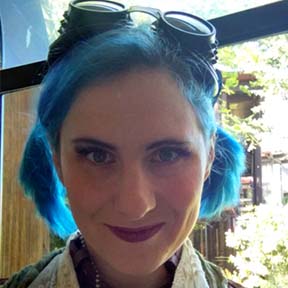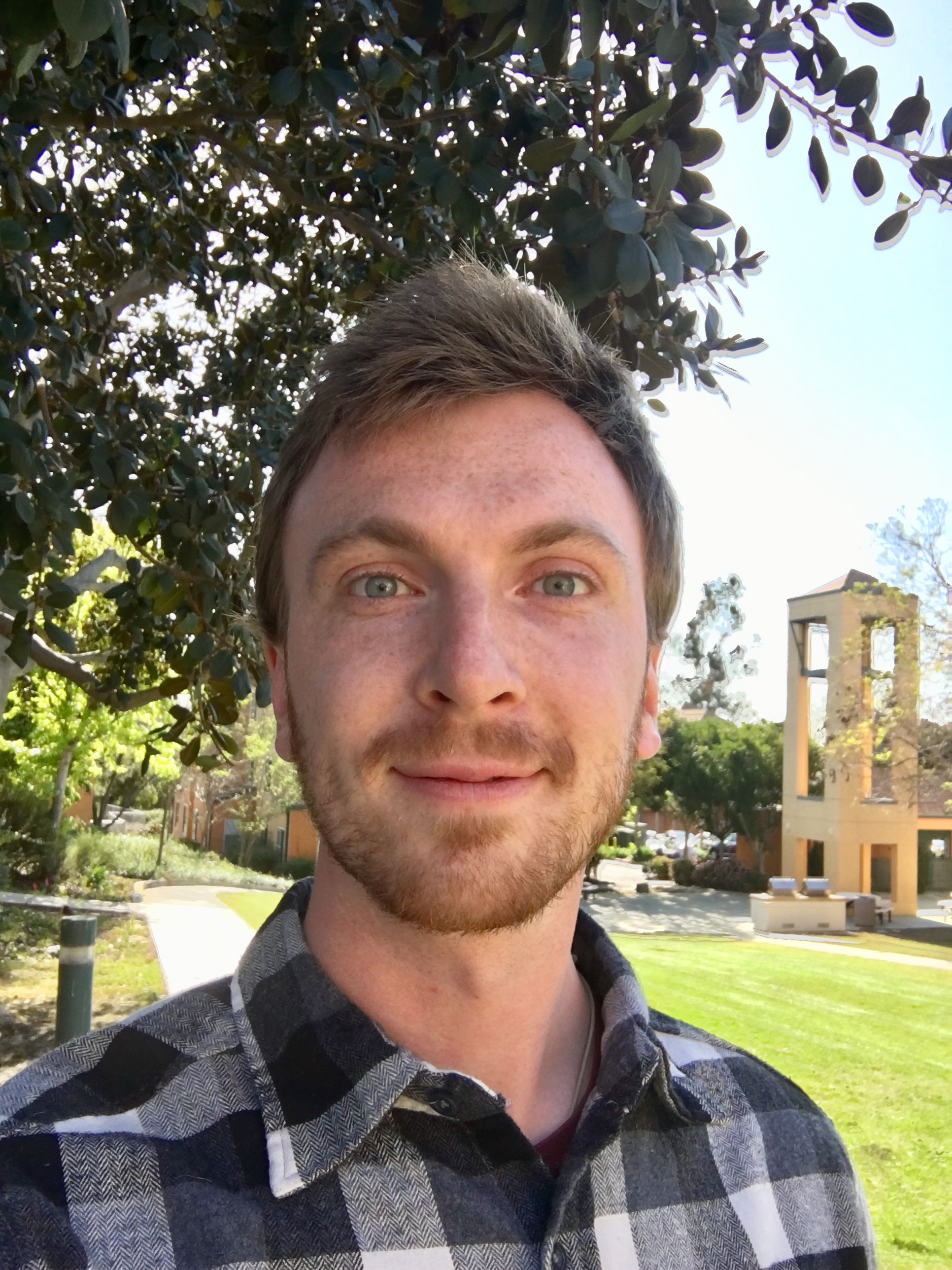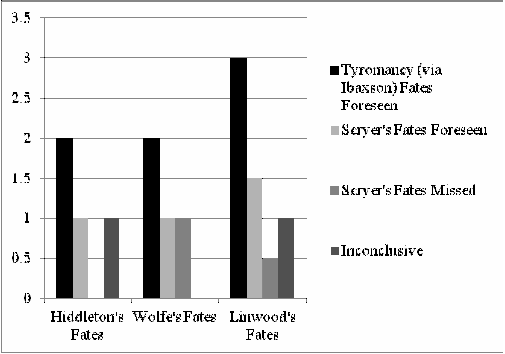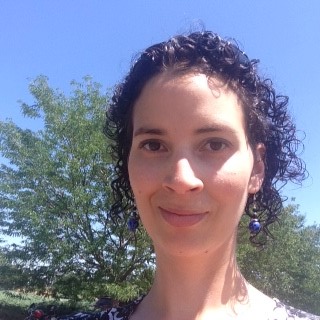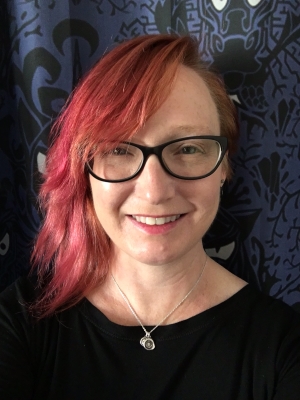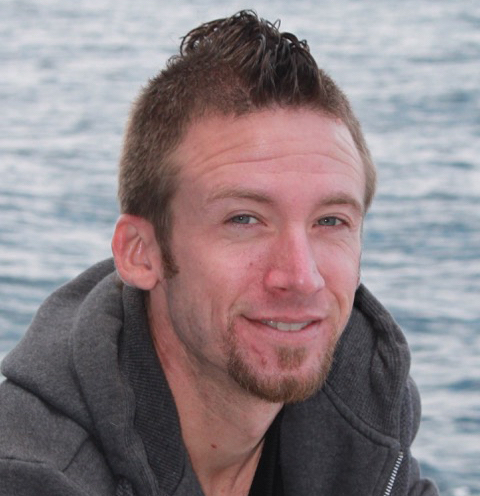Medium Matters is an occasional series exclusively on TheQuill.com. You can support Marissa and all our creators by donating on our Patron page.
Dear Medium Matters,
I think something supernatural, like a curse, or a hex, or an evil eye, is wrong with my house, or with me, or with my Scotty, Baxter. He’s been acting strange lately. He’s always been quiet, especially for a little dog, but these last few weeks he’s been barking all the time. He wakes me up two or three times every night, barking and growling. He snaps, not at guests or the mailman or anything, just at blank walls and empty rooms. He’s a good dog. Yesterday, he was staring at the wall and growling and then he jumped into it and tried to bite it so hard he left a dent in the drywall.
It’s not just Baxter though. I’ve been feeling anxious lately, and I swear it’s not just in my head. Little things are getting moved around, like my makeup. I always keep it very organized, but I’ve found everything thrown around like a teenager’s room three times in the last two weeks. Other little things in my bedroom get moved around too.
I haven’t really noticed it, but all my friends complain about the cold when they come over, and last week, when my friend David visited, he started shivering so badly his teeth chattered, and his lips were turning blue. I’ve had the maintenance guy come out to look twice, and he swears the heater and the thermostat are fine.
I’m sure this is something supernatural, but what can I do about it? I don’t know what I’ve done wrong, who I’ve offended, or how to fix it. I’m worried. What if it gets worse? Are my friends in danger? Am I? Is Baxter?
Hoping you can help.
Cursed, in Kansas City.
Hi Cursed,
First: yes, this very well might be something supernatural, but no, I don’t think you’re in any kind of physical danger, nor is Baxter.
Before we get into the supernatural, please do some things for me: Take your dog to the vet and get him checked out. Put down traps or poison, or call an exterminator, in case mice are knocking your makeup over in the night (That could explain Baxter as well). Try setting up a space heater and making some coffee or tea the next time your guests complain of being cold. Talk to a professional about your anxiety and make sure it’s not just the sinking feeling of being 29 and single, staring down $120,000 in student loan debt while you support yourself on unreliable freelance writing gigs. Have you done all that? Things still feel wrong? Alright, let’s get into this.
I think you’re being stalked by a ghost. All the signs you’ve mentioned point to it. This means someone who died recently is harboring a deep obsession with you, enough to keep them tied to the living world. Maybe it’s an ex who thought they deserved one more chance, the one with the good hair and too much of Mommy’s money. Maybe it’s that friend you always suspected was hoping for more, the one who was always so happy to listen when your romances fell apart. Maybe it’s a stranger who formed a really creepy attraction from a half-second of elbow contact at the supermarket and got hit by a car trying to sneak into the bushes outside your window one night.
I keep saying they, but allow me to rant a little before we go on. This is almost certainly the ghost of a man. Men are the ones who think they’re entitled to a piece of you, whether you say yes or not. There are ex-boyfriends who think they still own you, that the little shifting floor of independence you’ve managed to claw together out of the flood of debt and expenses and zero-hour contracts is just a cry for help. Or maybe it’s a ‘friend’ who thinks he’s in the ‘friendzone’, that mystical sex waiting room that he’ll get out of if he just tears down all the men you’re actually looking for a romance with to show you how nice a guy he is. This creepy, awful, toxic shit can turn really dangerous for women. We all know it. We all hear stories, even if it never happens to us. And sometimes, these predators don’t even give up when they die. The only bright spot here is that a ghost stalker won’t graduate to assaulting you, because they can’t lift anything heavy enough to hit you with.
Alright. Rant over. Let’s talk about what you can do.
Start with the easy things. Ward your house. Salt or rowan branches across doorframes and windowsills are good generic wards, or you can use the symbols of any faith you hold sincerely. Make sure you ward everything, or the ghost can still slip in through that neglected attic window, or the hole above the back door that your landlord’s been promising to have patched for two months. The wards work by reinforcing the psychic significance of the house, dividing the world between inside and outside, which brings us to step two.
Get rid of anything connected to whoever’s haunting you. If this is just the spirit of some creeper who decided you were meant to be, you won’t have anything, but if it’s a bitter ex, you need to toss anything they might feel a deep connection to. Photos, clothes, gifts, the card he gave you, just in case, no obligations, just if things don’t work out, the one in black and silver that you were sure he’d see any activity on, the one wrapped in the note with a number you could call any time, if you needed help.
I’m assuming you know who’s haunting you. You probably do, but if not, peel an apple in one long strip and throw the peel over your left shoulder. It will twist to spell out the spirit’s name when it lands, or maybe the name of your true love, if you still believe in those.
If putting up wards and emptying your closets doesn’t get rid of your stalker, you’re going to need help, and it’s time to make a choice, because there are two different paths to pursue, and they both take money and time. You can try to reason with the ghost, or you can force it out. Reasoning is easier to do, but people who are so determined to harass you that they linger after death as a skeevy revenant aren’t usually inclined to be reasonable.
You can try talking to the ghost without professional help. Get some friends, preferably ones who knew the stalker before he died. Sit round a table. Light some candles if you like, and have a séance. There’s a lot of mechanical aids you can use: Ouija boards, crystal balls, bells, bowls of ink, etc., but at the core, you’re just trying to open your mind and spirit and allow the ghost to make contact. Definitely don’t sacrifice anything. You’ll ruin your tablecloth. In an ideal scenario, you’ll make contact with the ghost, your friends will be supportive presences and a productive dialogue will get the stalker out of your life and on to their final reward. In the most likely scenario, nothing will happen and you’ll all get bored after twenty minutes and watch Paranormal Activity. In the next most likely, the ghost will possess someone who happens to be sensitive, say awful things that make you cringe, and try to grab your breasts, or maybe it will turn out that one of your so-called friends always thought your stalker deserved another chance, that he was a good guy at heart. Amateur séances only succeed 9% of the time, and more than half of those fail to make controlled contact. But, hey, they’re free, unless your friends are assholes.
If you’re not one of the lucky 9%, you’ll need professional help. That means a medium. Don’t rush. Don’t just pick name out of the phonebook. Get references if you can, and make time for a long initial interview. As regular readers here will know, picking a medium is like picking a therapist. If you work with one, they’ll see a lot of you that’s usually hidden. Channeling is a deep emotional connection, with you and with the spirit. The medium will put you in contact with the spirit who’s stalking you and try to help you talk with him. That’s really the biggest problem with friendly contact. Do you think you’ll be able to get through to the ghost of the creeper who’s stalking you and convince him to stop? Do you think he’ll have learned to take no for answer? If you knew him well and you think you can talk him down, get a medium and try, but otherwise, you’ll need to do things the harder way, which means exorcism or a court order.
Exorcism is hard to come by, unless you happen to be priest or an adept yourself. So if you want one, first ask: was there a religious symbol you thought of immediately back when we talked about first steps? That’s great. Thank whichever god you can that the world hasn’t knocked you around one too many times to believe there’s anything benevolent watching over you. If you and the ghost share a religious conviction, and that religion allows for exorcism, get a properly bonded priest/monk/nun/elder or what-have-you and go to town. The only problem is that, even in our increasingly secular age, this kind of exorcism depends on faith. If you and the ghost don’t both believe sincerely, no amount of witch doctors, wizened gurus, old priests, or young priests are going to help.
If you don’t have the benefit of faith and an indulgent religious official, exorcism requires an adept. This is different than a medium, and much harder to find. A true adept is constantly aware and present in the adjacent plane where things like ghosts linger. That makes them powerful. These people are hard to find. I don’t know how many live quietly, but there are seven ‘public’ adepts, known to a small community of enthusiasts and lesser practitioners, in the five boroughs of New York. There are five in greater Los Angeles. There are seventeen in Istanbul, the largest collection in the world. I don’t personally know of any in Kansas City. All I can say about looking for one of these people is: good luck, and all I can say about negotiating with them is: be polite. They won’t care how long it took you to find them, or what you had to do to get into the party, or that you haven’t really slept in weeks, and they could fix it with a snap of their fingers. Adepts have their own rules, and they usually don’t want money.
Since getting an adept for an exorcism is more-or-less a pipe dream, like graduating without debt, or buying a house before you’re thirty-five, if you don’t have faith, go to the same place you’d go for a marriage license: the courthouse. Let me begin by saying that, yes, getting a judge to issue a restraining order against a ghost is very, very difficult. Getting a judgment and an order against an ordinary stalker is hard enough. For a ghost, you might go through every judge in town and get absolutely nothing. You will get pushback and disbelief from judges, bailiffs, lawyers, and bystanders with no business in your life at all. Be patient. Do your research. Hope. A medium can offer expert testimony, or maybe even channel the spirit in court to convince the judge. If you see a therapist, they can speak to the harm the spirit does. Even then, they probably won’t help you. They didn’t before, when he was handsome and formal in his suit, when he smelled of cologne and leather and money. Why would they help now, when he’s just a shadow that never leaves the corner of your eye?
If you can get a judgment, though, it will bind the spirit. Laws govern the spirit realm that corresponds to a legal jurisdiction and spirits can’t ignore them. You do need to serve the papers for a restraining order, which can be tricky. You can get a medium to channel the spirit and have an ordinary lawyer serve the spirit while it’s manifest, or you can find and retain the ghost of a lawyer, burn or shred the restraining order, and have them serve the papers entirely in the spirit realm. Look for lawyerly ghosts at unused courthouses or defunct law offices, and lure them to your home with incense made from shredded trial transcripts.
But the truth is, none of this will work for you, probably. Your friends never kept this creepy fuck away from you when he was alive. Talking reasonably didn’t stop him from obsessing hard enough to bind himself to you across the veil. It won’t help now. God doesn’t have time for women alone, and adepts are farther out of reach than the perfect contours from the magazine are when you stand at the mirror trying not look like you’ve been crying. The only real choice is faith in something better, in the church of you. Believe that you can make it work, that you can hustle and scrape and scrounge your way past rent next month, past ramen and peanut butter and into something better. Believe in yourself until your faith is hard and bright as new knife, and then maybe you can throw the spirit out on your own terms, and maybe it won’t all come falling down around your ears because you’re twenty dollars short for this month.
That’s a lot to digest, I know, but you can handle it. Good luck and stay strong, Cursed.
Marissa Matters, Medium.
© 2018 by R.K. Duncan
Author’s Note: This story began as some cheap jokes with just enough narrative to string them together. I think I began it after a humorous peek at the Wikihow article on exorcism. The social commentary appeared before the final draft, but it took several more rounds of submission and revision before I realized the real story was the columnist and I gave her the space she needed to explain what drives someone to write an internet advice column on how to deal with ghosts.
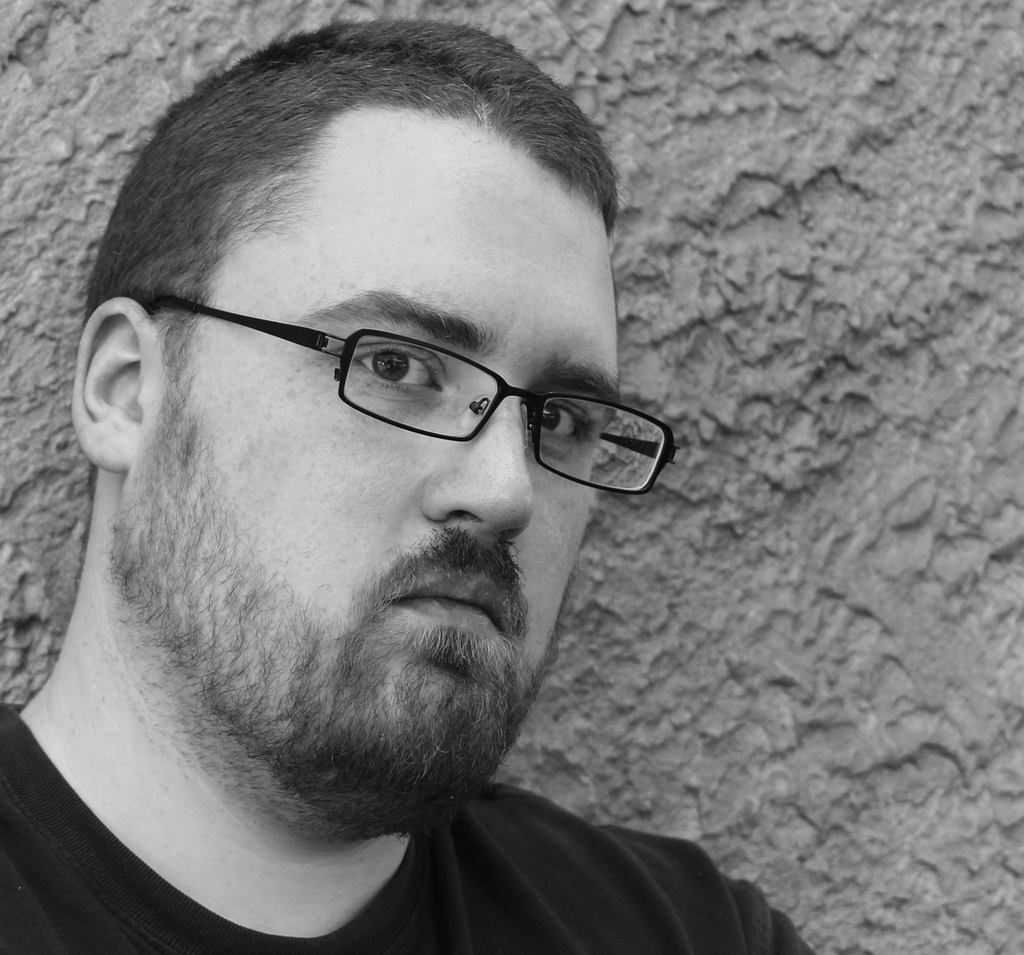 R. K. Duncan lives in a ramshackle apartment in West Philadelphia with his supportive and long-suffering partner and a shocking absence of cats. When not writing, he is occassionaly paid to lambaste stupid robots. In his spare time he cooks and lavishes attention on his beloved German cooing knives. Before writing, he studied philosophy and linguistics at Haverford college, and glimpses of academia can sometimes be found in his work. His fiction has appeared most recently in Cast of Wonders and Body Parts magazine. His blog and links to other work can be found at rkduncan-author.com.
R. K. Duncan lives in a ramshackle apartment in West Philadelphia with his supportive and long-suffering partner and a shocking absence of cats. When not writing, he is occassionaly paid to lambaste stupid robots. In his spare time he cooks and lavishes attention on his beloved German cooing knives. Before writing, he studied philosophy and linguistics at Haverford college, and glimpses of academia can sometimes be found in his work. His fiction has appeared most recently in Cast of Wonders and Body Parts magazine. His blog and links to other work can be found at rkduncan-author.com.
If you enjoyed the story you might also want to visit our Support Page, or read the other story offerings.

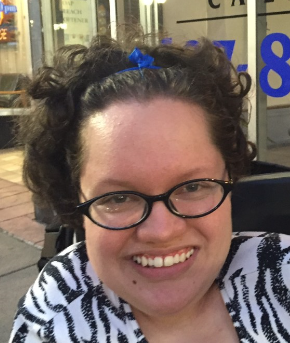
_cover.jpg) Dead Reckoning is a romance/mystery/horror novel from 2011, the eleventh in the Sookie Stackhouse series of novels by Charlaine Harris (which is the basis of the HBO show True Blood). The previous books are all
Dead Reckoning is a romance/mystery/horror novel from 2011, the eleventh in the Sookie Stackhouse series of novels by Charlaine Harris (which is the basis of the HBO show True Blood). The previous books are all 